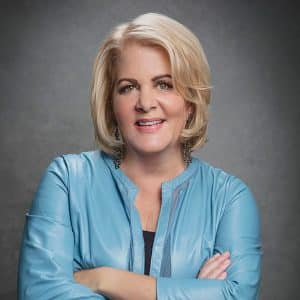Summary
Robin, with a background in organizational psychology and diversity, equity, and inclusion, shares her unique perspective on organizational transformation through user-centered design and research, grounded in the Ubuntu philosophy — I am because we are — emphasizing interconnectedness rather than individualism. She critiques conventional industrial-era business assumptions and Milton Friedman’s shareholder primacy model, citing a shift led by CEOs like Mark Benioff and Larry Fink toward stakeholder capitalism that includes employees, customers, and communities. Robin identifies researchers’ key superpowers aligned to the research arc: learning through deep listening, connecting cross-functional teams to break down silos, and generating actionable insights that address ‘experiential significance’ — moments when data reveals unavoidable truths that call for change. Using her Wells Fargo ethnographic projects as case studies, she illustrates how customer realities exposed needed shifts in strategy, structure, processes, and rewards. For example, the bank’s budgeting tools were misaligned with how customers manage money, and rigid underwriting rules stifled small business credit access. She stresses the need for researchers to engage with organizational culture and resistance to facilitate transformational change. Robin recognizes this as a cultural revolution accelerated by the pandemic and social inequality, urging researchers to take their seat at the table and leverage their predictive power to create a more human-centered, inclusive future.
Key Insights
-
•
Ubuntu, the African philosophy 'I am because we are,' offers a powerful lens to view human interdependence in organizations versus the US norm of rugged individualism.
-
•
Organizations still operate on outdated industrial-era assumptions of predictability and mechanistic problem-solving despite living in a volatile, uncertain, complex, and ambiguous (VUCA) world.
-
•
The shift from Milton Friedman’s shareholder primacy to ecosystem stakeholder capitalism is redefining the purpose of business to include all stakeholders — employees, customers, communities.
-
•
Researchers have unique superpowers: learning by deep listening and empathy, connecting across organizational silos, and generating insights that identify what really matters (experiential significance).
-
•
Applying research to both 'out there' (customer realities) and 'in here' (organizational assumptions) reveals misalignments crucial for transformation.
-
•
Customer-centric research naturally busts silos by revealing end-to-end experiences that cross multiple departments and functions.
-
•
Organizational change requires addressing culture, which can create resistance; researchers need skills in organizational consulting and facilitation alongside research craft.
-
•
A Wells Fargo ethnographic study revealed customers don’t use complex budgeting tools but rely on constant tracking and automation, calling for a strategic shift in product design.
-
•
Research into small business credit application processes showed rigid underwriting rules create friction and missed opportunities, highlighting the need to rethink decision-making structures.
-
•
The Wells Fargo sales scandal roots traced back to conflicting incentives between sales and service cultures; confronting such cultural issues is essential but difficult and slow.
Notable Quotes
"Ubuntu means I am because we are; we don't really know our own humaneness unless it’s in relationship to other people."
"We live in a VUCA world—volatility, uncertainty, complexity, ambiguity—but many organizations still operate from industrial-era mindsets."
"The purpose of a corporation is to promote an economy that serves all Americans, not just increase shareholder value, as the Business Roundtable redefined in 2019."
"Researchers’ superpowers include deep listening, empathy, making connections, and synthesis—these help everyone in the organization learn and become smarter."
"Turning the research lens onto both the 'out there' customer reality and the 'in here' organizational assumptions is critical to see where alignment or misalignment exists."
"Customer-centric research is inherently silo-busting because customers experience the whole journey, not isolated departmental pieces."
"Experiential significance is that moment when a pattern in the data hits you as something undeniable that must be dealt with to make a difference."
"In our small business research, underwriters were so risk-averse, they created barriers by asking too many upfront questions, stifling customer experience."
"There is no quick fix to cultural issues like the sales versus service mentality; it’s a deep problem requiring ongoing change."
"Research really is the most predictive practice an organization has; we’re the only ones who can really predict the future."
Or choose a question:
















More Videos

"A kickback is a free flowing and life giving gathering that transforms and electrifies throughout the night."
Zariah CameronReDesigning Wellbeing for Equitable Care in the Workplace
September 23, 2024

"Your top priority doesn’t have to be the thing you choose, but it tells you what’s important to you."
John Cutler Harry MaxPrioritization for designers and product managers (1st of 3 seminars) (Videoconference)
June 13, 2024

"As leaders, don’t make it about you—put the spotlight on the people doing great work."
Nick CochranGrowing in Enterprise Design through Making Connections
June 3, 2019

"Sometimes it’s easier to pitch a change with a smaller group rather than rolling it out to everyone at once."
Deanna SmithLeading Change with Confidence: Strategies for Optimizing Your Process
September 23, 2024

"Quick wins help build trust and get stakeholders willing to work with you."
Magdalena ZadaraZero Hour: How to Get Far Quickly When Starting Your Digital Service Unit Late
November 16, 2022

"We didn’t exploit the knowledge gap. Everyone was willing to say I don’t know. Can you help me?"
Nova Wehman-BrownWe've Never Done This Before
June 4, 2019

"Artificial intelligence is about building human-like intelligence. This has opened up a golden opportunity for all of us to make a big impact."
Liwei DaiThe Heart and Brain of the AI Research
March 31, 2020

"The Digital Response Unit was a source of situational awareness and air traffic control within the flurry of daily COVID case counts and policy decisions."
Gordon Ross12 Months of COVID-19 Design and Digital Response with the British Columbia Government
December 8, 2021

"Listening to the 10% truth means acknowledging a bit of what they say even if you’re irritated."
Tutti TaygerlyMake Space to Lead
June 12, 2021
















